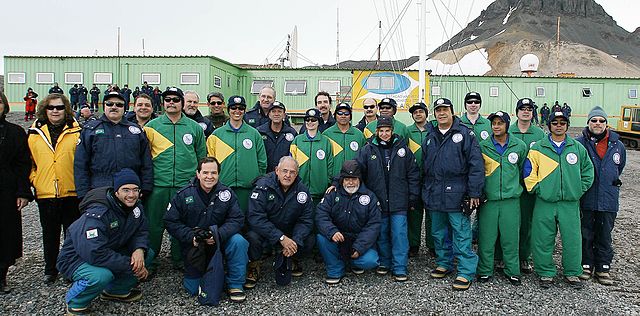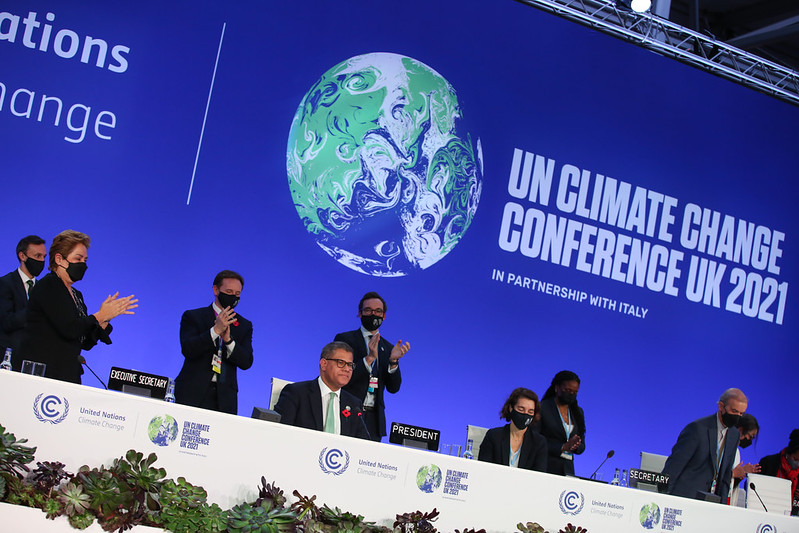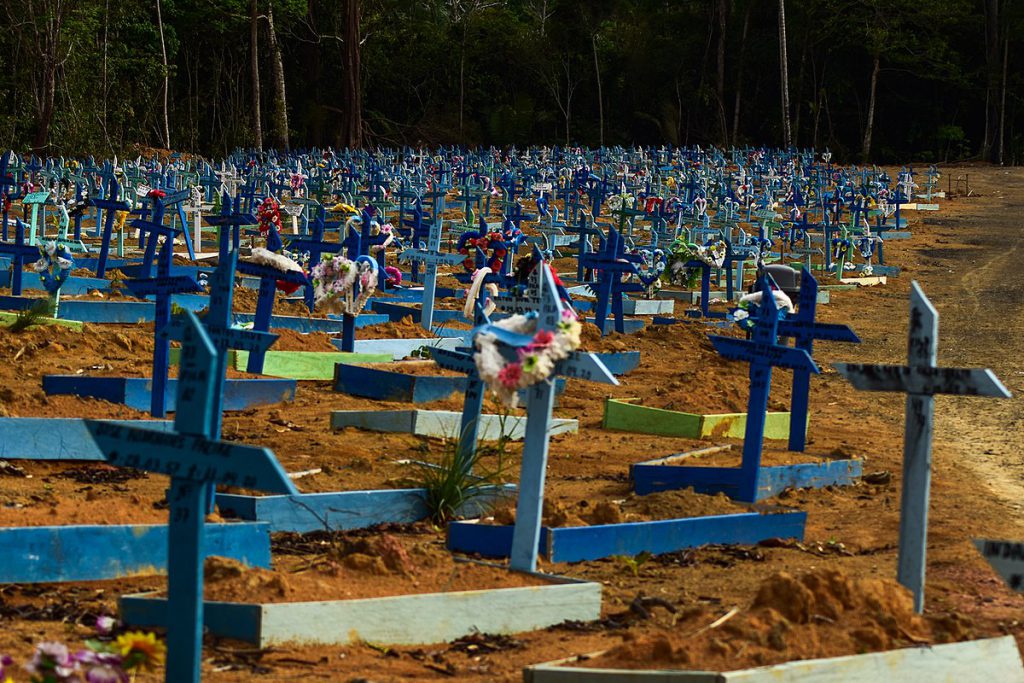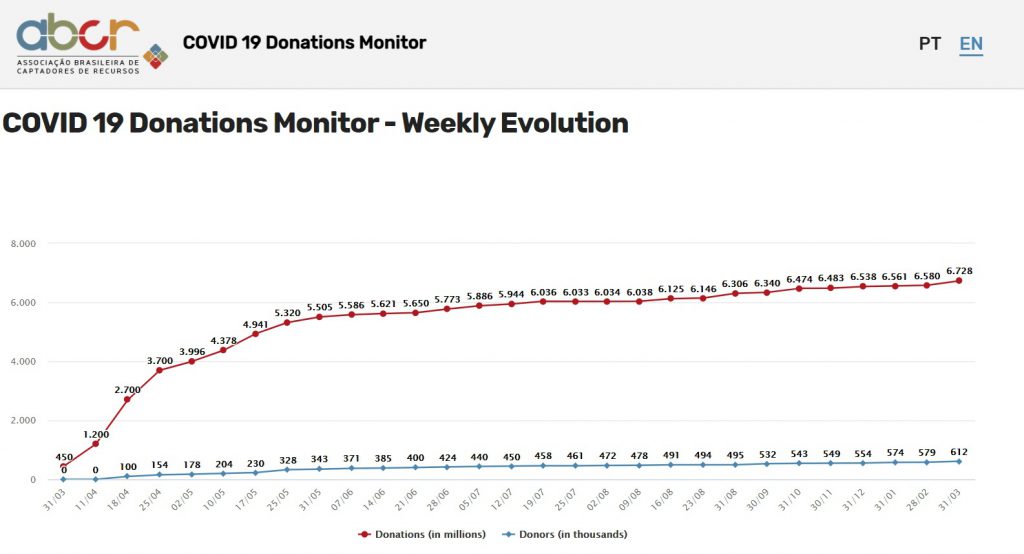Ignacio Javier Cardone – Assistant Professor in International Relations of the Pontificia Universidad Católica del Perú and researcher at the International Relations Research Centre of the University of São Paulo.

Brazil has been usually linked with images of the tropical, both internationally and domestically. However, the country has been actively involved with the southern polar region for almost forty years. While its involvement have been relatively modest when compared with that of Argentina and Chile, two countries which have a longer and more intense presence in the white continent, the question of why a tropical country such as Brazil has invested in being present there, remains.
In my new book, The Antarctic Politics of Brazil: Where the Tropic meets the Pole (Cardone, 2022), I approach this complex and fascinating question from a thorough historical reconstruction. There, I analyse how the evolution of the Brazilian geopolitical tradition, in special in the post-war context, has promoted the idea of projecting its national power overseas. While Antarctica has played a marginal role in such ambitions, that vision of the international role of Brazil was a necessary condition for the country to look at any kind of involvement in Antarctica. In that context, Terezinha de Castro, a young geographer, proposed that Brazil claim a sector based on the projection of their coastal limit lines to the South pole. Despite the so-called frontage theory never having become adopted as the official policy towards Antarctica —especially due to concerns regarding negative repercussions in Argentina and Chile— it has undoubtedly informed many of the country’s attitudes.
Another factor that has played a relevant role in delaying the involvement of the country with Antarctica, has been the relative backward scientific system, a limitation that was overcome only by 1970s. As Brazil rapidly developed its scientific structure, some scientists became interested in Antarctica, one of the most important repositories of scientific data in the world. But interests held by scientists alone was not sufficient to materialise an Antarctic expedition, and the Brazilian government actively blocked any proposal that could jeopardise negotiations with Argentina regarding the Itaipu dam dispute.
Notwithstanding, it was through the initiative of the Brazilian Navy, through its Comissão Interministerial para os Recursos do Mar (CIRM, Interministerial Commission for Maritime Resources), that the first official contact between the tropical country and Antarctica took place. The Navy not only promoted the involvement of Brazil in the country, but ended up constituting the backbone of the programme and structured, in many enduring ways, the manner in which the Antarctic is seen and approached in Brazil.
Antarctic science, on the other hand, certainly has risen its profile, becoming a well-developed, matured and internationalised programme. After 1990, a greater level of autonomy and a more relevant role within the definitions of the steering of Brazil’s Antarctic policy has been looked for by scientists and scientific institutions. However, up until now, Antarctic science has struggled to get free of the instrumental role with which it is usually seen —that is, as a means to participate in the Antarctic regime and any eventual exploitation of Antarctic natural resources. In addition, it had to suffer from financial instabilities and a lower priority when the issue is resources allocation, which reached the verge of collapse on several occasions, across time. Above all, with just a few notable exceptions, Antarctic humanities and social sciences have been episodic in the career of Brazilian academics and did not constitute any kind of corpus that could assist or inform political decision making.
While the recent inauguration of the Antarctic Comandante Ferraz Station and the future construction of a new logistic polar vessel in Brazil seems to signal the commitment of the country towards its Antarctic presence, the financial difficulties remain. Worsening the situation, the continuous attacks to scientists and the important cuts in science funding project a shadow over the future of Brazilian science and, with it, over the possibility of future development of current Antarctic projects.
The elaboration of a new Brazilian policy for Antarctica, Polantar, has been under way during the last year, but remained centred on the CIRM and with no open participation. Forty years of presence will signal the maturity of Brazil with regard to its objectives and commitments in Antarctica. However, the lack of a strategic updated view on what Antarctica could offer to Brazil, continues to hamper its involvement in the continent. This is especially the case when it comes to the potential that cutting edge Antarctic science can offer to Brazil without submitting it to an instrumental role for any alleged future exploitation of Antarctic natural resources.
What seems still wanting regarding Brazilian policy towards Antarctica is an update of the objectives underpinning its strategic thinking, the recognition of the intrinsic value of its Antarctic research (and not merely as a means to political participation or future natural resources exploitation) and the investment in Antarctic humanities and social sciences in a way that could offer new avenues when thinking about Brazilian involvement in the South polar region.
Reference Literature:
Abdenur, A. E., & Neto, D. M. (2014). Rising powers and Antarctica: Brazil’s changing interests. Polar Journal, 4(1), 12–27. https://doi.org/10.1080/2154896X.2014.913910
Cardone, I.J. (2022). The Antarctic Politics of Brazil: Where the Tropic meets the Pole. Palgrave Macmillan, Cham, XIX, 259 pp. https://bit.ly/2ZDSTG5
Cardone, I.J. (2021). La apuesta brasileña en la Antártida: trayectoria reciente y perspectivas futuras a la luz de la inauguración de la nueva Estación Antártica Comandante Ferraz. In: Cuadernos de Política Exterior Argentina (Nueva Época), 133, pp. 29-46. https://doi.org/10.35305/cc.vi133.108
Cardone, I. (2019). Brazil´s Antarctic Future. In G. Sciorati (org.) The Global Race for Antarctica: China vs the Rest of the World [ISPI Dossier 26 July 2019]. Italian Institute for International Political Studies, Milano.
Cardone, I.J. (2015). As Posições Brasileiras no Sistema do Tratado Antártico com Ênfase na Questão Ambiental (Thesis Dissertation). Curitiba, Universidade Federal de Parana. 134 pages. https://acervodigital.ufpr.br/handle/1884/38844
Castro, T. (1959). Antártica o Assunto do Momento. Boletim Geográfico, XVII(150), 238–245.
Castro, T. (1976). Rumo à Antártica. Rio de Janeiro: Freitas Bastos.
Child, J. (1988). Antarctica and South American Geopolitics: Frozen Lebensraum. New York: Praeger.
Ferreira, F.R.G. (2009). O Sistema do Tratado da Antártica: evolução do regime e seu impacto na política externa brasileira. Brasilia: Fundação Alexandre de Gusmão.
Sampaio, D.P.; Cardone, I.J.; Abdenur, A. (2017). Brazil, the Antarctic Treaty System and Antarctica. In K. Doods, A. Hemmings & P. Roberts (orgs.) Handbook on the Politics of Antarctica. P. Edward Elgar Publishing. https://doi.org/10.4337/9781784717681.00031
Simões, J., Viana, A. R., Secchi, E. R., Correia, E., da Silva, H.E., Wainer, I.E.K.C., … & Valentin, Y.Y (2013). Ciência Antártica para o Brasil: plan de ação 2013-2022. Brasília.
Correia, E., da Silva, H.E., Wainer, I.E.K.C., … & Valentin, Y.Y (2013). Ciência Antártica para o Brasil: plan de ação 2013-2022. Brasília.





